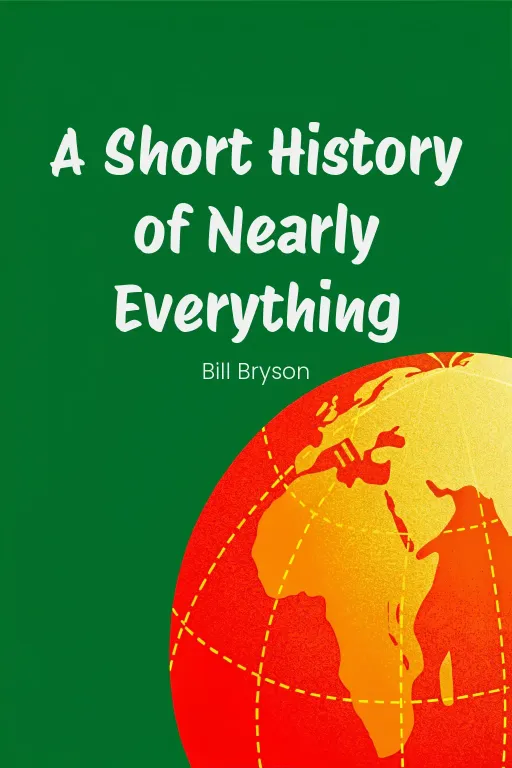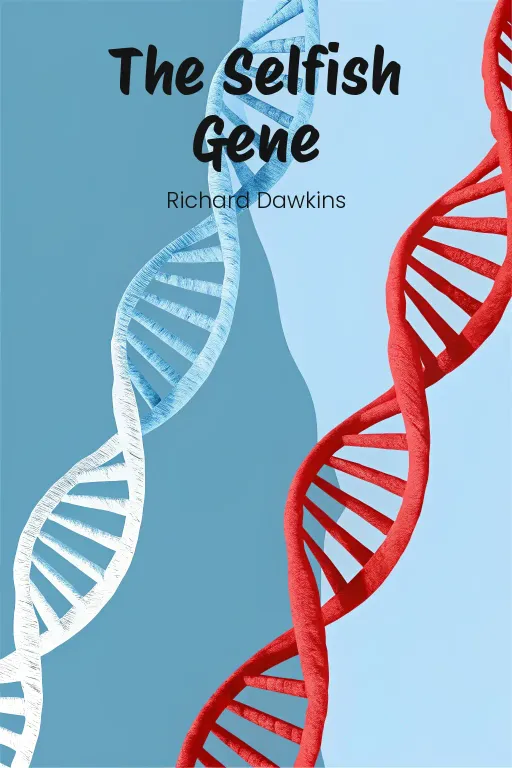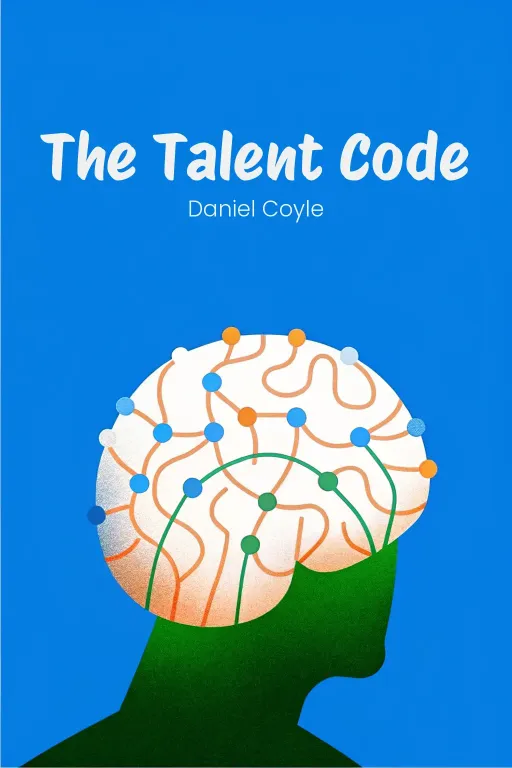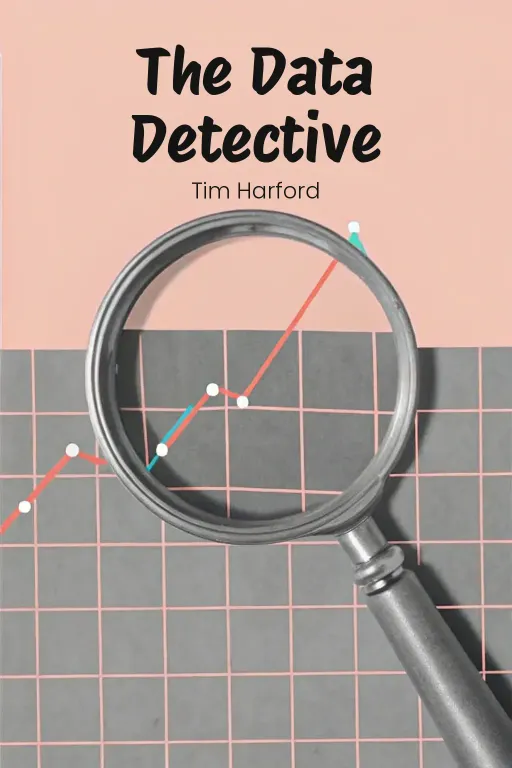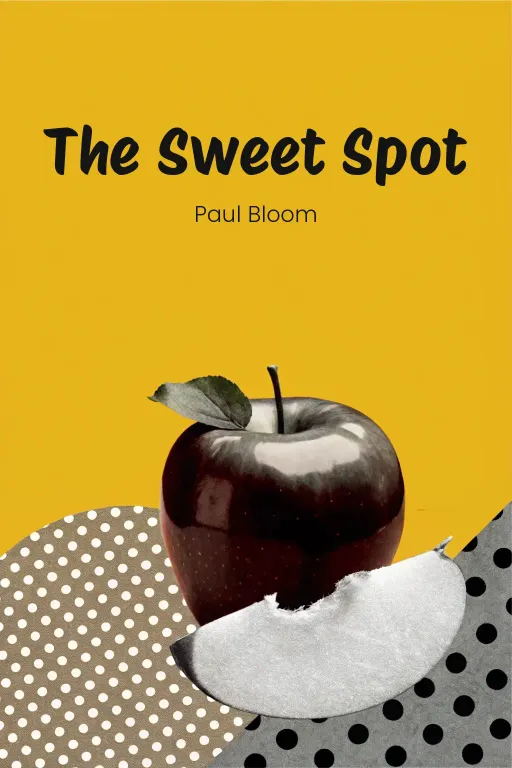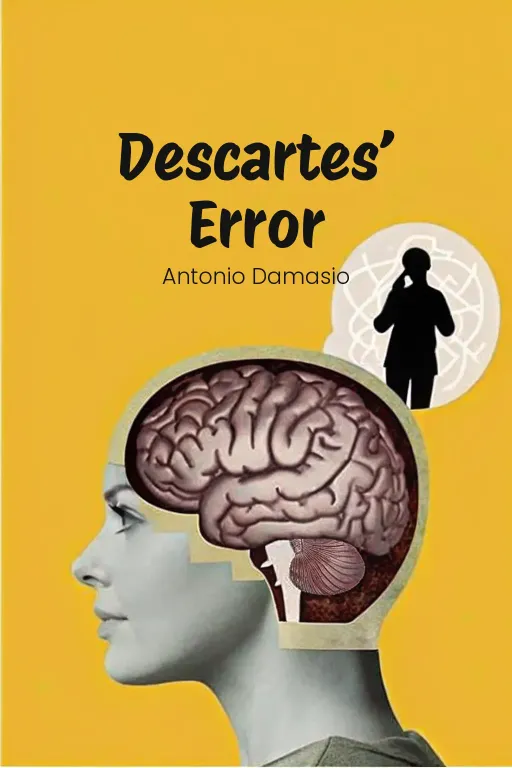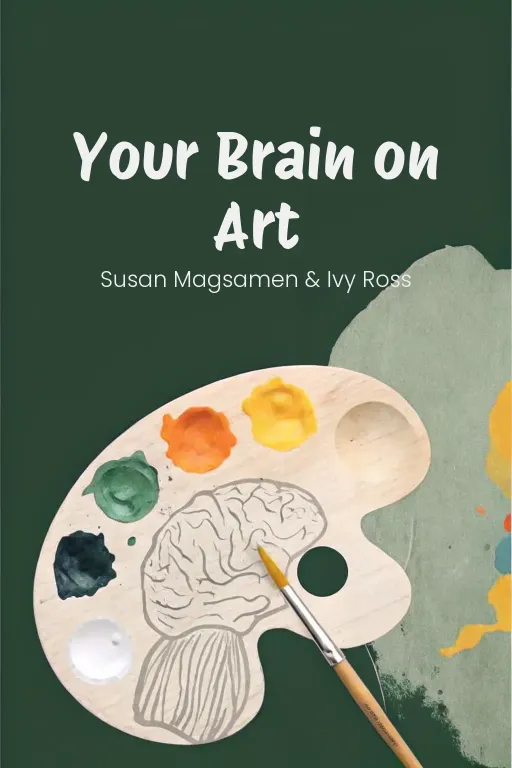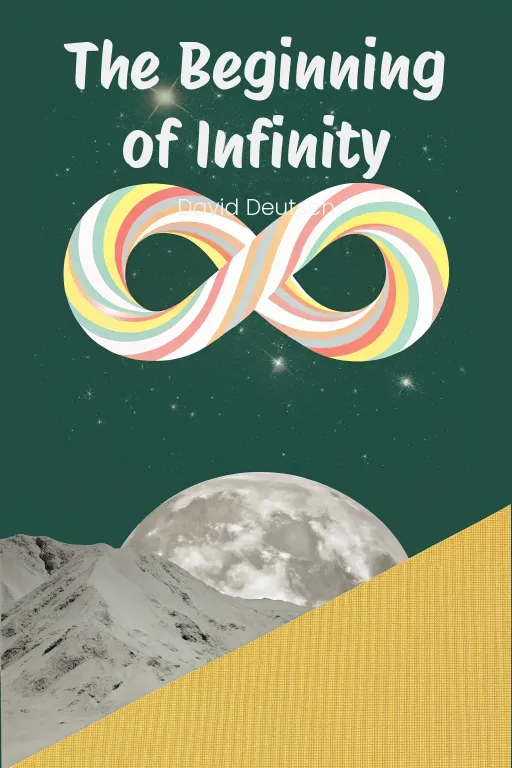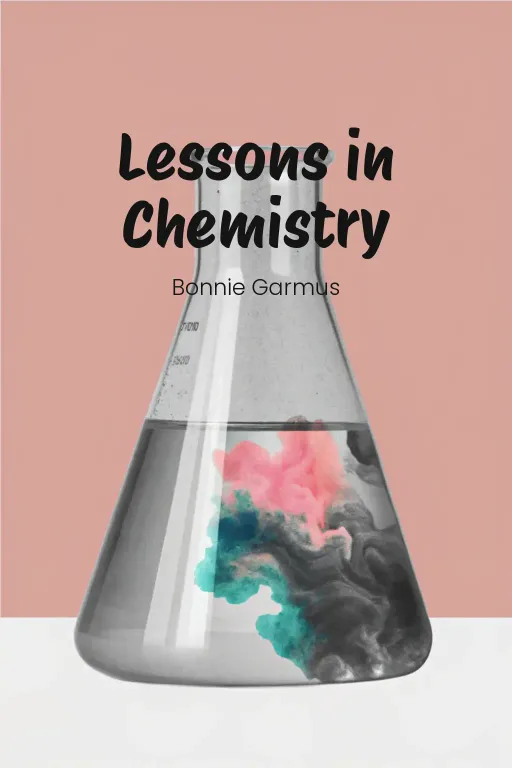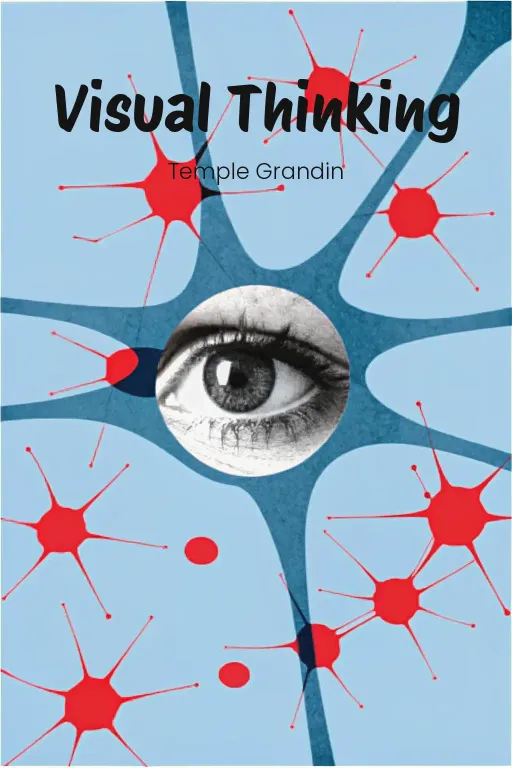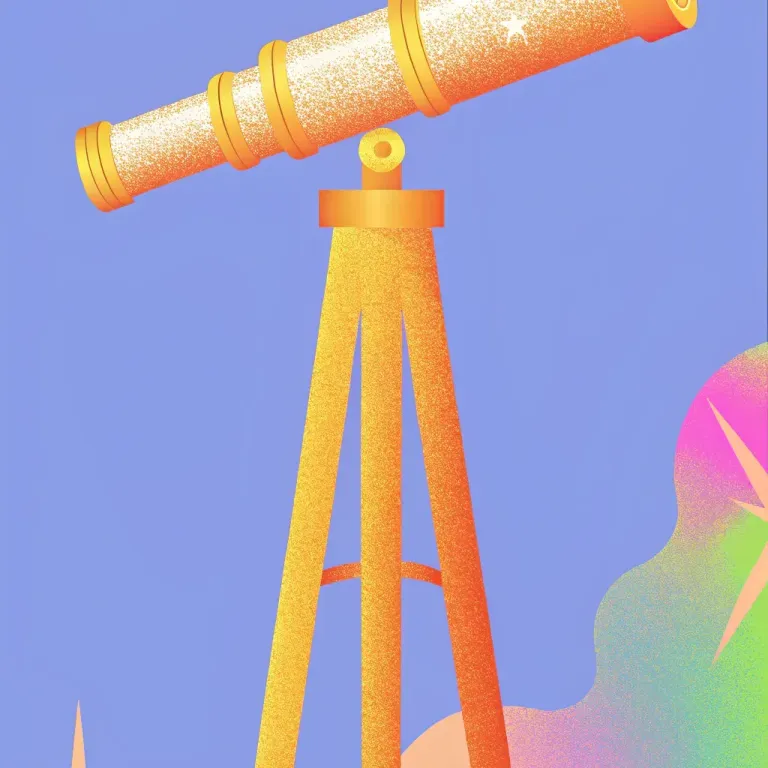
Find Meaning in a Meaningless Universe?
Podcast by Wired In with Josh and Drew
On the Origins of Life, Meaning and the Universe Itself
Introduction
Part 1
Josh: Hey everyone, welcome back to the show! Today, we're tackling some seriously big questions – life, the universe, everything, you know? And we've got Sean Carroll's “The Big Picture” as our guide. Honestly, it's a fascinating deep dive into reality. Drew: “Fascinating” is one word for it, Josh. Maybe "mind-bending" or even "existentially challenging" would also fit. I mean, he's trying to link, like, the smallest particles to our sense of right and wrong in a single book. Pretty ambitious, right? Josh: Absolutely! But that's what's so great about Carroll's approach. He introduces this concept called "poetic naturalism." Basically, it says there's one single, natural reality, but we can describe it in countless different ways. Think of it like a symphony orchestra – each instrument, whether it's physics or philosophy, adds another layer to the same core melody. Drew: Okay, I get the analogy. So, the melody is all about, you know, atoms bumping into each other and evolution doing its thing. But Carroll also digs into the big stuff: How complex things arise from simple rules. Why we're so driven to find meaning and purpose. And, of course, the big one: How do reconcile all this with a deterministic universe where free will might not even be real? Josh: Exactly! That’s what we want to explore today. First, how does poetic naturalism bridge the gap between hard science and our search for meaning? Then, we'll dive into the mystery of consciousness. And finally, morality: In a universe that doesn't seem to care about us one way or the other, how do we create our own values and purpose? How do we become, like, the architects of our own meaning? Drew: Hmm, so basically, the big takeaway is that you may start questioning whether you are just, you know, stardust with delusions of grandeur, or if there's something more to all of this? Buckle up, folks – or don’t, if you believe free will is overrated.
Poetic Naturalism
Part 2
Josh: So, to start, poetic naturalism, as Carroll lays it out, is this really neat blend of science and what it means to be human, right? The basic idea is that there's just one reality – no ghosts or alternate dimensions. But within that single, natural world, there are tons of ways to describe things, and they can all be valid, depending on what you're trying to figure out. Drew: Exactly, it’s like saying, "The universe runs on physics, but telling me my love for dark roast coffee is “just” 'chemistry' is…well, an insult to dark roast coffee and me." Different perspectives, different layers of truth. Josh: Exactly! Carroll uses this idea to talk about how we see the world in two main ways: the "manifest image" and the "scientific image." The "scientific image" is all about looking at the universe through the lens of science, with atoms, forces, precise measurements, that sort of thing. The "manifest image," on the other hand, is how we actually experience life – our feelings, our stories, what gives us a sense of purpose. Drew: Okay, so if I’m understanding this correctly, when I see steam rising from my coffee and think, "Mmm, hot, gonna take a sip," that’s the manifest image – heat as I feel it. But the scientific image is, like, off to the side whispering, "Actually, Drew, that’s just molecules moving faster and bumping into other molecules." Josh: Yep! And what’s so cool about poetic naturalism is that it doesn’t make you choose one over the other. It says they’re both super important. One tells us about the objective, measurable world, and the other connects us to that world in a way that makes sense to our lives. Drew: Okay, but are they really both “essential”, Josh? I mean, sure, it’s nice to think the heat on my skin means something, but if we’re really getting down to the nitty-gritty of molecules, doesn’t science kind of win? I mean, it's the foundation, right? Josh: I get where you're coming from, but let's use Carroll's favorite example: temperature. Scientifically, yeah, temperature is just molecular motion. But the “word” "hot" mostly exists in the manifest image. It’s what lets us relate to that motion. Without the manifest image, you don't quite get the whole story – that warmth means a cozy fireplace, a cup of tea, or a summer heatwave. Drew: I’ll give you this. It’s not that the manifest image is less “true”, it’s just playing on a different field. A romantic dinner involves photonic wavelengths and biochemistry, but nobody wants to hear that. Josh: Exactly! And that’s the beauty of poetic naturalism. It says every way to describe things matters, as long as you don’t mix them up. Carroll's idea here gives you permission to be amazed by things like love, purpose, sunsets – without having to deny the science behind them. Drew: So, it's not about picking sides; it's about knowing when you're in the realm of poetry, and when you're in the realm of data. Josh: Precisely. And that’s what really makes poetic naturalism stand out – it's about living peacefully together, not about who's on top. Drew: Alright, optimism noted. But let’s complicate that harmony with emergence, the second big theme. Because if poetic naturalism feels like a nice duet between manifest and scientific images, emergence is where the orchestra swells into symphonies—complex things built from simple, underlying rules. Josh: For sure! And this is where things get really interesting. Emergence is all about how things at a higher level come from how things at a lower level interact. You get something that’s more complicated and meaningful than just the sum of its parts. Carroll often uses consciousness as the perfect example here. Drew: Ah, yes. The age-old "how is the brain a bag of electric jelly that somehow makes us… “us”?" Question. Josh: Right! Consciousness is perfect for illustrating emergence. Scientifically, it’s just neurons firing signals – all following the rules of chemistry and physics. But if you zoom out to the manifest level, suddenly you have awareness, feelings, and the joy of listening to music. Drew: So it's like Carroll’s example of a symphony – scientifically, it's just vibrations. But you can’t reduce Beethoven’s Ninth to acoustic frequencies. It’s the interplay of parts that creates something transcendent. Josh: Exactly. And what emergence shows us is that there are levels of reality that transcend reductionism. You can’t explain – or experience – Beethoven, consciousness, or love just by listing the molecules involved. Drew: Beautiful in theory, but let me play devil’s advocate again: Does emergence mean science can stop short? Isn’t the whole point of science to dig down and analyze, even if the answers aren’t so poetic? Josh: Not at all! Emergence isn’t about rejecting deep analysis; it’s about recognizing that new interactions create genuinely new things. Think about evolution – natural selection builds complexity from simplicity. It doesn’t negate the role of genes or physics; it builds on them. Emergence gives us a way to love outcomes without denying the basic foundations. Drew: Alright, I’m onboard with that – for now. But where this really hits people is love, right? The idea that something so personal and “huge” can boil down to hormones making biochemical decisions. Josh: And that’s why the layered approach of poetic naturalism is so powerful. At the manifest level, love is profound; it’s connection, vulnerability, shared journeys. But the scientific image makes that understanding even richer. Knowing that oxytocin bonds people doesn’t take away from love’s lived depths; it gives us ways to nurture it better. Drew: So poetic naturalism lets us say, "Yes, love is chemistry, but it’s also Shakespeare"? Josh: Precisely. By putting scientific insight within the framework of the manifest image, poetic naturalism doesn’t shrink human experience—it magnifies it. Drew: Okay, I can see the value in that. But Ang—I’ve got one last question burning a hole in my deterministic heart: How does this framework handle free will? Or are we all just dominoes falling through time, pretending to make choices?
Consciousness and Identity
Part 3
Josh: That's a fantastic question, Drew. But before we tackle free will head-on, let's zoom out a bit. How do consciousness and identity even “fit” into this whole worldview? The connection between free will and determinism really hinges on how we understand consciousness: how subjective experience arises and how we define ourselves within this framework. Sean Carroll's poetic naturalism gives us the foundation, but the complexities of human cognition and self-awareness build the rest. Drew: Consciousness and identity... yeah, that's where things get interesting, right? Physicalism offers a nice, neat structure: it's all just neurons firing and circuits doing their thing. But then you run headfirst into the "Hard Problem" of consciousness and suddenly... the map's not so clear anymore. What actually makes "me," me? Josh: Exactly! Let's home in on what philosopher David Chalmers famously called the "Hard Problem" of consciousness. It's, like, the Mount Everest of philosophical problems. Unlike the "easy" problems—understanding how the brain processes visual stuff or stores memories—the Hard Problem asks: How in the world does physical brain activity create subjective experience, those qualia...you know, the feeling of seeing red, tasting chocolate, or hearing a song? Drew: Qualia? Should we unpack that a tiny bit? So, qualia is the fancy term for subjective experiences, right? It's like… the difference between knowing the wavelength of the color red versus actually seeing red. Josh: Exactly! And to really illustrate this, let's dive into one of philosophy's most famous thought experiments: "Mary the Color Scientist." Imagine Mary—she's lived her entire life trapped in a black-and-white room. She's a brilliant scientist, and she knows everything there is to know about the physics of color: wavelengths, light, how the brain processes everything. But she's never actually seen color herself. Drew: So, Mary's got a PhD in "Rainbow Physics," but the first time she sees a color movie, she realizes she's been seriously missing out. I get it. Josh: Precisely. The day Mary steps out of her grayscale world and actually sees red for the first time, she gains a completely new understanding—one she couldn't have figured out from all her book knowledge. That visceral sensation of "redness" is the essence of qualia. Drew: And here's where physicalism runs into a wall, right? If Mary's complete understanding of all the physical data couldn't actually predict or recreate that moment of seeing red for the first time, doesn't that hint that there's something about consciousness—about us—that goes beyond just the material? Josh: That's the core of the argument. Those who believe in dualism—that the mind is somehow separate from physical stuff—point to thought experiments like this to suggest that there's a fundamental gap in purely physical accounts of the mind. It wasn't that Mary lacked facts, but that she lacked that lived experience to interpret them. For dualists, this suggests the existence of something irreducible—something beyond the physical. Drew: Okay, I can practically hear the dualists patting themselves on the back. But surely the physicalists have a rebuttal? Josh: Absolutely. Physicalists argue that Mary's revelation doesn't somehow mean her brain wasn't doing all the work along the way. What happened in Mary's story is just that empirical data being integrated into her subjective, understanding, and that framework is still coded in her neurons. It's not that there's something mystical about redness, it's the brain finally achieving a new configuration based on the experience it lacked before. Drew: Hmm, that's a solid defense. But it doesn't really account for the feel of "red," does it? Like, you can give me the complete mathematics of stars, but it still won't pack the same punch as actually seeing the Milky Way splashed across the night sky. Josh: And that's where things get so murky because subjective experience doesn't neatly fit into scientific equations. To stir the pot even more, Chalmers introduces another concept: philosophical zombies. Drew: Zombies? Finally, some undead action in philosophy! Josh: Not quite the flesh-eating kind, Drew! Philosophical zombies are hypothetical beings who are physically identical to humans—they'd pass every brain scan, ace every behavioral test—but somehow, they lack consciousness. Which is to say, they lack that inner, subjective experience. Drew: So, they'd smile at my jokes without actually cracking up inside, or watch a gripping movie with zero emotional rollercoaster happening behind their eyes, right? Josh: Precisely. They'd mimic human behavior perfectly, but remain hollow inside—like an incredibly advanced AI capable of imitation but that doesn't actually feel anything. The idea with this thought experiment is: "If we can even conceive of such zombies, then consciousness must be something more than just physical processes. It's something you couldn't just “fake” with the right molecules." Drew: Okay, these zombies are purely theoretical, yes? Like, no one is claiming they could actually exist. Josh: Yeah, it's about logical possibility, not what's plausible in the real world. And that's where the physicalists usually fire back: just because you can imagine zombies doesn't prove anything. It's a thought experiment, not proof that consciousness transcends the physical. Drew: Fair point. But when you put it alongside something like Mary's color experiment, you start to see a recurring theme: a gap—a seemingly huge one—between a physical description and a subjective, first-hand experience. Which is where dualism comes back. Some people just look at this gap and say, "The only way to explain consciousness is for the mind to be distinct from the body, somehow." Josh: Exactly! And that's where Carroll, and a lot of modern thinkers, push back. Carroll's poetic naturalism uses emergence to explain this gap. Instead of saying there are two separate realms—mental and physical—we can say consciousness is an emergent property from the brain. It's caused by the amazing complexity of our neural networks. Drew: So, consciousness as emergence... it's like Beethoven's symphonies coming out of vibrating strings and woodwinds. The strings and woodwinds themselves are important, but together, they create something you can't fully explain by just looking at the atomic level. Josh: Precisely! Consciousness, in this view, is the end result of neural activity working together. And because emergence has layers acknowledging the debate, it reframes the subjectivity and objectivity arguments. Sure, depression might be synapses misfiring in a certain layer, but it can also be the aching emotional void someone feels. Both layers are important to creating understanding. Drew: I'm with you. Though I'll admit, this layered approach doesn't quite silence that little philosophical voice in my head that's whispering: "But why does the orchestra even bother to play music in the first place?"
Moral Frameworks and Meaning
Part 4
Josh: That's the million-dollar question, isn't it? And digging into consciousness always leads us to free will and morality. Which perfectly sets the stage for today’s theme: morality. If the universe is deterministic, ruled by physics, how do we even begin to build ethics, purpose, and meaning? How can we tell right from wrong? Drew: Okay, so here's the core issue for me. If our brains are just physical systems, subject to cause and effect, how can we actually justify morality? Why should anyone be blamed or punished if their actions were, on some level, inevitable? Josh: Precisely! And that's where poetic naturalism "really" shines. Sean Carroll argues we don't need morality to be intrinsic or divinely ordained for it to be meaningful. We construct it ourselves, from a mix of evolutionary drives and collective reasoning. Let's unpack those evolutionary roots first. Drew: Ah yes, the old "morality comes from biology" argument. So, are we talking primates, food sharing, and survival of the fittest? Josh: Spot on! Frans de Waal's research on primates is incredibly insightful. Chimpanzees, for instance, show altruistic behavior, like sharing food even without immediate benefit. That reciprocity hints at a basic moral instinct – early humans learned that cooperation and empathy helped the group thrive. Drew: Okay, so morality started as a buddy system – "I'll scratch your back if you scratch mine"— maybe with bananas instead of back-scratching. But those are just basics. How do we get to the complex stuff, like climate ethics or human rights? Josh: That’s cultural evolution and philosophical reasoning at play. As we developed language and abstract thought, we moved beyond just reciprocal favors. We started building ethical systems – rules that help societies function on a grander scale. Drew: Okay, time for my skeptical hat. We end up with all these competing systems, right? Consequentialism, deontology, virtue ethics… they all claim to have answers, but each one seems to fall apart under scrutiny. Josh: Exactly! Take consequentialism. The core idea is simple: judge actions by their outcomes. Utilitarianism, a form of consequentialism, wants us to maximize overall happiness. Sounds ideal, but not always easy to implement. Drew: Ah, the trolley problem! Okay, let's dive into morally awkward thought experiments. A runaway trolley, five people on one track, one on another. What do you do? Josh: Right? A strict consequentialist would flip the switch, saving the five lives at the cost of one. Minimizing harm seems logical. But – and this is crucial – it often feels wrong. You're actively choosing to cause harm, even if it saves more people. Drew: Exactly, pulling that lever makes you morally responsible. Consequentialism asks us to ignore our gut feelings and focus on the numbers – but we’re emotional creatures. What happens when the equation doesn’t feel right? Josh: And that’s where deontology steps in. Immanuel Kant would argue that morality is about universal moral principles, not consequences. A deontologist would never intentionally harm an innocent person, regardless of the outcome. Drew: So, the Kantian approach to the trolley problem is… to do nothing? The person watching just lets five people die? Josh: That’s the critique – deontology can be incredibly rigid. By prioritizing inviolable rules, you might ignore the real-world effects of your inaction. Drew: Then you've got virtue ethics, the "real" wildcard. Forget rules or calculations; it says, "Focus on what kind of person you want to be." It's about cultivating virtues – courage, empathy, honesty – instead of fixating on individual decisions. Josh: Precisely. Virtue ethics puts the emphasis on long-term moral growth. Do your choices align with the kind of compassionate, ethical person you aspire to be? With the trolley, a virtue ethicist might consider what action reflects the moral character they're trying to develop. Drew: But isn’t that kind of… squishy? Not very actionable? If I’m at that trolley lever, I have to choose, not have an existential crisis! Josh: True. Virtue ethics isn’t about providing immediate answers, but about constant reflection and personal development. But all three frameworks – consequentialism, deontology, virtue ethics – offer valuable perspectives. Carroll’s poetic naturalism doesn’t say any one is "right." They’re all tools for navigating the moral landscape. Drew: Okay, what about context? Morality changes. What's ethical now might have been unthinkable in another era or culture. Josh: Exactly. Poetic naturalism sees morality as dynamic – a conversation constantly evolving based on lived experiences, cultural norms, and shared dialogue. Think about same-sex marriage. Not long ago, it wasn't part of mainstream morality. But as LGBTQ+ people shared their stories, empathy grew, and standards shifted. Drew: Right. Society said, "Maybe love and commitment don’t have to fit in this old box." Eventually, laws and morals caught up. Josh: And that's why collective dialogue is so critical. Our morals aren’t handed down – they’re built from shared experiences and reflection. It’s a process, not a static thing. Drew: Sounds great in theory, but disagreement is inevitable, right? Not everyone will agree on these shared reflections. Josh: Absolutely. Which is why humility is essential in moral discussions. Poetic naturalism doesn't solve every dilemma. But it highlights openness and the value of collective reflection. Drew: So, morality isn’t an algorithm or divine command – it’s this collaborative project, like a huge, messy community art piece. I can work with that. But Josh, if morality is something we construct, what about purpose and meaning? Is it all just… subjective?
Conclusion
Part 5
Josh: Right, Drew, that’s really the core of poetic naturalism. It doesn't shy away from the idea that, ultimately, meaning and purpose are subjective, but it actually sees that as a good thing, a strength! Meaning isn’t something we just stumble upon, it's something we actively create. Whether it's love, art, science, or simply connecting with someone, the beauty lies in the fact that meaning is shaped by our choices and connections within this natural world. Drew: So, instead of hunting for some grand cosmic rulebook, we're the ones writing our own stories, imbuing meaning into this huge, indifferent universe. It's kind of humbling, isn't it? But also incredibly empowering at the same time. Josh: Precisely. Sean Carroll's poetic naturalism provides a framework where science doesn’t diminish our humanity but actually enhances it. By gaining a better understanding of the natural laws that govern the cosmos and the emergent complexity of consciousness, we become better equipped, if you will, to craft lives filled with purpose, compassion, and curiosity. Drew: And maybe, instead of feeling lost in the vastness of everything, we can take some comfort in the idea that, among all these atoms colliding and neurons firing, we're the ones who get to decide what truly matters. Josh: Exactly, so here’s a thought to chew on as you go about your day: What kind of meaning are you actively creating? You know, what stories are you telling that kind of elevate the raw ingredients of existence into something uniquely human? Perhaps that’s where the real poetry of the universe resides: in us. Drew: And while you're pondering all that, don't forget – you're essentially stardust trying to decide what to have for dinner. No pressure or anything. Josh: True! So, on that note, thanks so much for joining us as we explored The Big Picture. Until next time, keep questioning, keep creating, and most importantly, keep embracing the poetry of existence.
